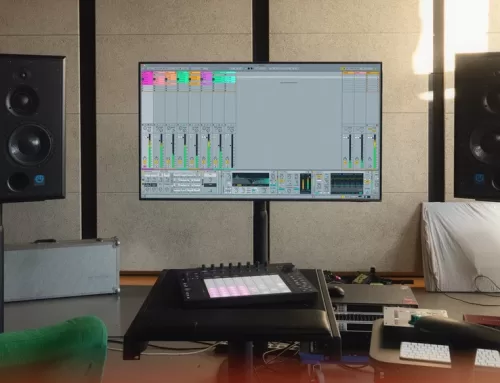
Quincy Jones lived a life almost too impossible to believe. His successes, struggles, and profound creativity, can teach us a lot about the true power of music
Quincy Jones, one of the great musical geniuses of the 20th century has passed away at the age of 91. A polymath, hitmaker, entrepreneur, industry mogul, and philanthropist, he leaves a legacy that extends far beyond the music industry. As we reflect on his incalculable cultural contributions, here are some lessons we can all take from Jones’ remarkable life.
1. Creative collaboration is a powerful force
Jones was undeniably a singular talent, but he always pointed out that his biggest achievements were team efforts. Part of his genius was trusting his collaborators and giving them room to shine. Interviewed in 2007, he said, “To me, the most powerful records come from a collective creativity. You get good records when you let all the people who work on it put their personality in their particular area.”

…but don’t compromise when you know you’re right.
Jones also wasn’t afraid to put his foot down when the music needed it. In an interview with The Detail, Jones recounts a memorable moment when Michael Jackson asked him to remove the iconic violin runs that kick off Don’t Stop ‘Til You Get Enough. Jones’ answer? “No way.”
2. There are many ways to make a living in the music business, so try all of them
Throughout his life, Jones moved seamlessly from performer to arranger, to composer, to record producer – and that’s just in the music business.
He also had a hand in founding TV production companies, music magazines, and producing major motion pictures. No matter the situation, Jones had a knack for identifying opportunities and making the most of them.
3. Being critical is not a bad thing
Jones was never one to pull any punches when it came to music (he infamously described The Beatles as “the worst musicians in the world”). However, it would be a mistake to view this as simple negativity.
For Jones, being honest about what you like and do not like was essential to creating music with lasting impact. “One thing you don’t want around you is a lot of yes-men that tell you everything is great,” Jones once said. “That’s bullshit. I want everyone to always feel free to say what they think.”

4. A good producer needs a good process
To reach a discography as gigantic as Jones’, you need to develop a good workflow.
A classic technique was to take what he called musical ‘polaroids.’ When working on a demo, he’d start by recording the rhythm section and then try a few vocal takes on top. Based on that, he’d assess the song’s potential, adding additional instrument parts if it was worthy. During his three-album stint working with Michael Jackson, Jones recalls putting together between 600 and 700 ‘polaroids’ before whittling them down to the twenty tracks they would release together.
5. Get educated
Jones’ genius didn’t come out of nowhere. He worked tirelessly to master not only the nuts and bolts of music theory, scoring, and arranging, but also developed an encyclopaedic knowledge of music across countless genres.
Jones once declared that “music is emotion and science”, challenging budding musicians to do their homework, develop their technique, and listen widely.

6. Don’t be afraid to mix genres
Jones’ expansive love of all genres – he stated that “the only music I don’t like is bad music” – allowed him to bring a versatility into the studio that few producers could match.
When Michael Jackson wanted to break away from the saccharine sweetness of the Jackson 5, Jones pulled together soul, jazz, funk, disco, R&B, and rock to remake pop music for a new generation.
7. Keep the music moving
Jones’ best tracks are utterly addictive – once you press play they pull you along until the closing note. This is no accident: Jones’ producing style prioritised details and developments to always keep the listener hooked.
“You have to keep the ear candy going because the mind turns off when the music doesn’t change,” Jones said in 2018. “You’ve got to keep the ear busy.”

8. Everyone needs a bit of luck
Jones worked tirelessly to build his storied career, but luck also played a pivotal role. A chance encounter with Ray Charles would result in Jones’ first musical partnership while he was still in his early teens, and a casual conversation with Michael Jackson, where the pop star asked Jones if he knew any producer that could work on his first solo album, would eventually lead to the best-selling album of all time.
In perhaps the most stunning example of this, Jones narrowly missed getting caught up in the infamous Manson murders – not turning up at Sharon Tate’s house that ill-fated night for the simple reason that he’d forgotten about the invite.
9. Burnout can happen to the best of us
In the mid-80s, Jones had been working at full-tilt for years. A breaking point came after his work on The Colour Purple, the Academy Award-winning film that he not only produced but scored the soundtrack for. The pressure was so intense that Jones would suffer a mental breakdown upon the completion of the project.
“I put too much on my plate and it took its toll,” Jones recalled of the experience. “You learn from your mistakes and I learned I couldn’t do that again.”

10. Don’t give up
Jones’ childhood was brutal. Throughout his formative years, he had to grapple with a fractured family, gang violence, poverty, and racism. Even once his career was well underway, he still suffered no shortage of setbacks. In his 20s, he toured a production of the jazz musical, Free and Easy, which went so badly that it almost ruined his career and left him nearly $150,000 in debt.
Through it all, Jones never lost sight of his goals and never surrendered his passion for music – instead, he picked himself back up and made history.





Leave A Comment
You must be logged in to post a comment.